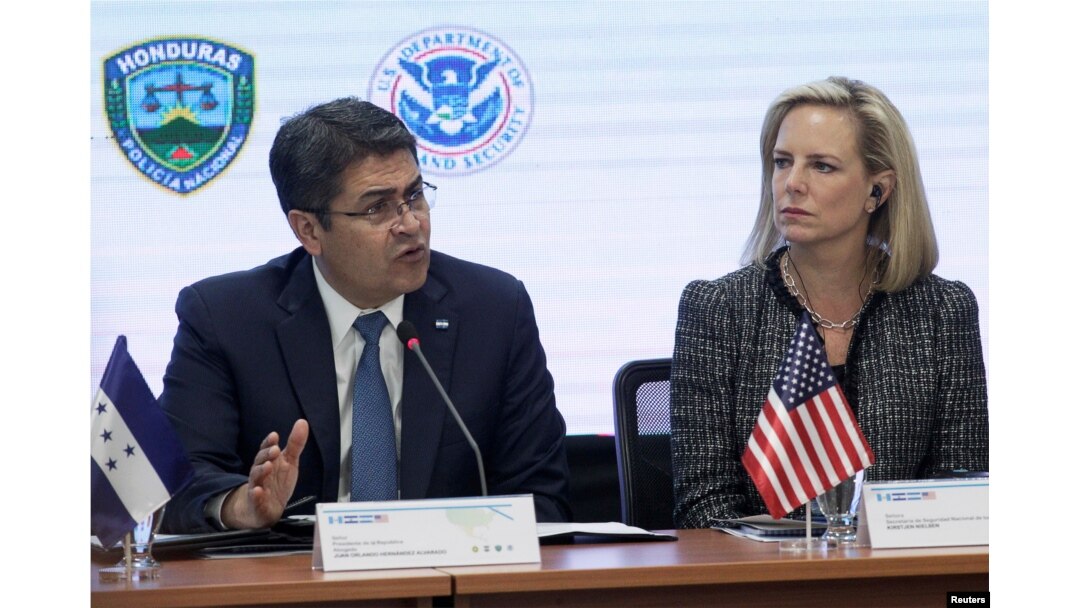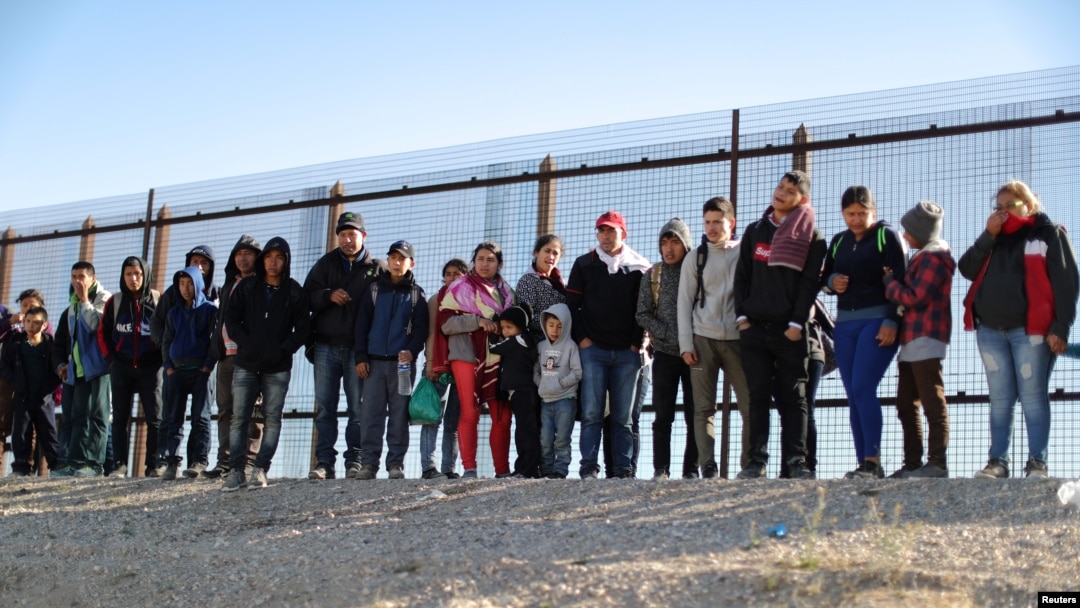As the top homeland security official in the U.S. prepared to announce the signing of a multinational security agreement with several Latin American countries Thursday, capping a yearslong diplomatic process, U.S. President Donald Trump accused those same countries of "doing nothing."
Trump tweeted just before 6:30 a.m.:
For the last several days, however, U.S. Department of Homeland Security Secretary Kirstjen Nielsen has been holding high-level meetings with Mexican, Honduran, Guatemalan and Salvadoran officials, finalizing what DHS calls a regional compact to "stem the flood of irregular migration and develop a regional approach to addressing the ongoing humanitarian and security emergency at our Southern Border."
A request for comment made to DHS about the president's contradictory tweet and any repercussions on the regional compact was not immediately answered Thursday.
Hours after Trump's tweet, Nielsen, who had traveled to Miami and Honduras for negotiations, announced that the Central American countries had signed the memorandum of cooperation with the U.S.
The agreement signed in Tegucigalpa, Honduras, covers four broad areas: human trafficking and smuggling; transnational criminal organizations and gangs; information and intelligence sharing; and border security.
Nielsen's statements around the signing have focused largely on the agreement's potential impact on migration, as the U.S. has seen a recent spike in family arrivals at the border.

Honduran President Juan Orlando Hernandez speaks beside U.S. Secretary of Homeland Security Kirstjen Nielsen during a multilateral meeting at the Honduran Ministry of Security in Tegucigalpa, Honduras, March 27, 2019.
Honduran President Juan Orlando Hernández, however, framed the anticipated outcomes in terms of protecting migrants and combating organized crime.
"The migrant is the victim of criminal structures and should not be criminalized, rather the relevant authorities of the affected countries must work together to investigate and hold accountable the criminal groups that are causing so much suffering and grief," he tweeted in Spanish Wednesday.
Mexican President Andres Manuel Lopez Obrador Thursday acknowledged that migrants were increasingly coming north, "because there are no options, no alternatives in Central America."
Lopez Obrador said Mexico is doing its part to fight immigrant smuggling.
"We are going to do everything we can to help," he said. "We don't in any way want a confrontation with the U.S. government."
He said Mexico was going to maintain a "very respectful relationship" with the U.S. government and Trump, adding that the U.S. concerns were legitimate.
While overall arrests at the border are still well below the highs of the early 2000s, U.S. officials this week released data showing March has been another month of increased arrivals at the southern U.S. border, especially by families with young children, largely from the Northern Triangle countries (Honduras, Guatemala and El Salvador).
Some information in this report is from the Associated Press.


